Quick answer: The Best VPN for pfSense in 2024 is NordVPN!
| NordVPN | ExpressVPN | Windscribe FREE VPN |
|---|---|---|
 www.nordvpn.com NordVPN Price: Servers: 6000+ in 111 countries Simultaneous connections: 6 Jurisdiction: Panama Payment: PayPal, AmazonPay, Crypto, Google Pay, Klarna Torrenting: OK Unblocks US Netflix: Yes Encryption: IKEv2/IPSec, AES-256, OpenVPN, NordLynx Dedicated IP: $3.69/month TrustPilot Score: 4,2/5 Money-back: 30 days Extra: Double VPN, Obfuscated servers NordVPN review |
www.expressvpn.com ExpressVPN Price: Servers: 3300+ in 105 countries Simultaneous connections: 8 Jurisdiction: British Virgin Islands Payment: PayPal, Crypto, AliPay, Klarna, Torrenting: OK Unblocks US Netflix: Yes Dedicated IP: Not provided TrustPilot Score: 4,4/5 Money-back: 30 days ExpressVPN review |
 www.windscribe.com Windscribe Price: FREE Servers: 11 countries Simultaneous connections: Unlimited Jurisdiction: Canada Torrenting: OK Unblocks Streaming: Yes Traffic: 10 GB Free TrustPilot Score: 4,8/5 Speed: Fast |
pfSense, as a highly versatile and powerful open-source firewall and router software, is a key player in network security and management. Integrating a Virtual Private Network (VPN) with pfSense can greatly enhance its capabilities, providing users with increased security, privacy, and flexibility in their network management. This article is dedicated to exploring the best VPNs for pfSense, focusing on those that offer the most seamless integration, robust security features, and reliable performance.
Choosing the right VPN for pfSense requires a careful consideration of several factors. This includes compatibility with pfSense software, ease of setup and configuration, strong encryption standards for data protection, and reliable server performance to ensure minimal impact on network speed and stability. It’s also important to consider the VPN’s support for advanced features like kill switches and multi-hop connections, which can further bolster network security.
In this guide, we will introduce you to a selection of top VPN services that stand out in their compatibility and performance with pfSense. Whether you are looking to secure your home network, a small business, or a larger enterprise system, the right VPN can significantly enhance the security and efficiency of your pfSense setup. Our goal is to provide you with comprehensive information on each VPN’s features and capabilities, aiding you in making an informed decision that best suits your specific network requirements. With the right VPN, your pfSense system will not only be more secure but also more versatile, enabling you to navigate the digital world with greater confidence and control.
1. Best VPN for pfSense
1.1 NordVPN – Overall Best VPN for pfSense
NordVPN is an excellent VPN choice for pfSense for various reasons:
-
Extensive Server Network: NordVPN boasts a vast network with over 5,600 servers in 60 countries. This extensive coverage is ideal for pfSense users who need a reliable and varied range of servers to connect to, ensuring good speed and connectivity regardless of location.
-
High-Speed Performance: Recognized as one of the fastest VPNs, NordVPN ensures that using it in conjunction with pfSense does not significantly impact internet speeds. This is crucial for high-quality streaming and smooth online experiences.
-
Compatibility with pfSense: NordVPN provides specific instructions and support for setting up with pfSense, making it a convenient option for users who may not be very technically inclined.
-
Advanced Security Features: NordVPN offers double encryption, enhancing the security of your internet connection. This feature ensures that your private information is highly protected and not traceable back to you, which is particularly important for users prioritizing privacy and security.
-
Ad and Tracker Blocking: This VPN service includes features to hide ads and trackers from websites, allowing for uninterrupted and private browsing. This is beneficial for pfSense users who are concerned about online tracking and intrusive advertisements.
-
Universal Compatibility: NordVPN works with a variety of internet devices, making it a versatile option for different users and setups, including those using pfSense.
-
No Logs Policy: NordVPN’s strict no-logs policy ensures that your online activities are not recorded, providing an additional layer of privacy and security for pfSense users.
-
Excellent Customer Service: Offering top-notch customer support, NordVPN ensures that users can receive assistance whenever needed, which is particularly helpful for troubleshooting and setup queries related to pfSense.
-
Budget-Friendly with Robust Features: Despite being budget-friendly, NordVPN does not compromise on the number and quality of its security features, making it a cost-effective choice for pfSense users.
In summary, NordVPN’s combination of a large server network, high-speed performance, strong security features, and compatibility with pfSense makes it a great choice for users looking to enhance their online security and privacy while maintaining good internet performance.
1.2 PureVPN – Secure VPN for pfSense
PureVPN is a good choice for pfSense users for several reasons, particularly after its significant improvements in privacy practices:
-
Improved Privacy Stance: Following its early days of user data logging controversies, PureVPN has made substantial improvements in its approach to privacy. The company’s efforts to rebuild its reputation have led to it being considered a trustworthy VPN provider, which is crucial for users concerned about their online privacy and security, especially when using pfSense.
-
pfSense Setup Guide: PureVPN provides a detailed pfSense setup guide, which is particularly beneficial for users who are new to configuring VPNs on pfSense. This step-by-step guide simplifies the process, making it accessible even for beginners. The compatibility and ease of setup with pfSense are key considerations for users who rely on this open-source firewall and router software.
-
Multiple Concurrent Logins: Each PureVPN account supports up to five concurrent logins. This feature is ideal for families or individuals with multiple devices, allowing them to protect all their devices simultaneously with a single PureVPN account.
-
Global Server Coverage: With service coverage in more than 180 locations worldwide and over 2,000 VPN servers, PureVPN offers a wide range of options for connecting to servers globally. This extensive network is advantageous for pfSense users looking for various regional connectivity options and reliable speeds.
-
Additional Features: PureVPN offers extra features such as Smart DNS, Dedicated IP, Dedicated Streaming, Port Forwarding, P2P Protection, and DDoS Protection. These features enhance the overall functionality of the VPN, making it more versatile for different use cases, including enhanced streaming, better P2P support, and improved security against DDoS attacks.
In summary, PureVPN’s combination of a comprehensive pfSense setup guide, improved privacy stance, extensive server network, multiple concurrent logins, and additional features make it a suitable VPN choice for pfSense users. These attributes cater to both the privacy-conscious and those seeking a versatile, feature-rich VPN experience.
1.3 HideMyAss VPN – pfSense VPN With Good Support
Hide My Ass (HMA) can be a suitable VPN choice for users implementing it on pfSense for several reasons, though it also has certain limitations that should be considered:
-
Extensive Server Network: HMA offers a large network with over 1,000 servers in more than 190 countries. This extensive global coverage can be advantageous for pfSense users looking for a wide range of geographical locations to connect to, which can be beneficial for bypassing geo-restrictions or finding a server with optimal speed.
-
High Performance and Speed: Known for its speedy performance, HMA can be a good option for pfSense users who prioritize fast internet speeds. This is particularly important for tasks that require high bandwidth, such as streaming, gaming, or large file downloads.
-
pfSense Setup Guide: HMA provides a pfSense setup guide on its website, which can be helpful for users who are new to configuring VPNs on pfSense. This guide can simplify the setup process, although it’s important to note that the company may not offer advanced setup support based on forum responses.
-
Device Compatibility and Simultaneous Connections: HMA offers apps for various platforms including Windows, macOS, iOS, and Android, and can be configured on Linux systems. Each plan allows for up to five simultaneous connections, which is beneficial for users who want to secure multiple devices.
-
Strong Security Features: HMA offers strong security features, which are essential for protecting online activities and maintaining privacy. This is especially important for users who are routing their internet traffic through pfSense and require an additional layer of security.
-
24/7 Customer Support: The availability of 24/7 customer support can be reassuring for users, especially when they encounter technical issues or have questions about setting up and using the VPN with pfSense.
However, there are some limitations to consider:
- Logging Policy: HMA keeps logs, including records of users’ IP addresses, VPN server IP addresses, and connection times. This may be a significant concern for privacy-conscious users, particularly those who choose pfSense for its strong emphasis on privacy and security.
In summary, while HMA’s extensive server network, high performance, pfSense setup guide, device compatibility, strong security features, and customer support make it a viable option for pfSense users, its logging policy may be a drawback for those who prioritize complete privacy. Users should weigh these factors based on their specific needs and privacy requirements.
1.4 CyberGhost – Safe VPN for pfSense
CyberGhost VPN’s features make it an excellent choice for users seeking a VPN solution for pfSense, a popular open-source firewall and router software:
-
Extensive Server Network: With servers in over 90 countries, CyberGhost offers a vast and diverse network. This broad coverage is particularly beneficial for pfSense users who want to route their traffic through various global locations for either performance or geo-unblocking purposes.
-
NoSpy Servers for Enhanced Privacy: CyberGhost’s NoSpy servers, located in Romania and available for an additional fee, are self-operated and provide an extra layer of privacy. This feature is especially appealing to those concerned about their data being managed by third-party data centers. The enhanced privacy these servers offer aligns well with the security-focused nature of pfSense.
-
Performance and Speed: The NoSpy servers are not only more private but also faster than regular servers. This speed advantage is crucial for pfSense users who require efficient and high-speed VPN connections for their networking setup.
-
Strong Commitment to Privacy: CyberGhost’s no-logs policy and regular transparency reports demonstrate its dedication to user privacy and security. This commitment is key for pfSense users who prioritize keeping their internet activities private and secure.
-
Streaming Capabilities: CyberGhost is designed to stream content smoothly and can unblock over 40 streaming services worldwide. This feature is a significant advantage for pfSense users who want to use their VPN for entertainment purposes, ensuring easy access to a wide range of content.
-
Standard Security Options: The service includes all the industry-standard security options, making it a robust choice for integrating with pfSense. This ensures a secure and reliable VPN experience, which is vital for users relying on pfSense for their network security.
-
24/7 Live Support: CyberGhost provides around-the-clock live support, an important feature for users who might need assistance setting up or troubleshooting their VPN with pfSense.
In summary, CyberGhost’s extensive server network, exclusive NoSpy servers, commitment to privacy, excellent streaming capabilities, and reliable customer support make it a well-rounded VPN choice for pfSense users, offering both enhanced security and versatility in their network configurations.
1.5 ExpressVPN – Fastest VPN for pfSense
ExpressVPN is an excellent VPN choice for users of pfSense for several reasons:
-
Global Server Network: ExpressVPN boasts a vast network of servers in 94 countries, providing users with a wide range of options for foreign IP addresses. This global coverage is particularly beneficial for pfSense users who want to connect to servers in various locations, whether for accessing geo-restricted content, enhanced privacy, or improved connection speeds.
-
Specialized Servers: The servers provided by ExpressVPN are optimized for different uses such as streaming, gaming, and privacy, and they fully support P2P traffic. This specialization ensures that pfSense users can enjoy a tailored experience based on their specific online activities.
-
Strong Encryption: With AES-256-bit encryption, ExpressVPN ensures that your internet traffic is highly secure. This level of encryption makes your data incomprehensible to outsiders, including potential hackers and even your Internet Service Provider (ISP).
-
Effective OpenVPN Protocol: ExpressVPN supports the OpenVPN protocol, known for its balance of speed and security. This protocol is particularly effective for pfSense users, ensuring that online traffic is securely tunneled, thus preventing ISP throttling and safeguarding your privacy.
-
Speed and Reliability: ExpressVPN is known for its super-fast server speeds, which is crucial for activities like streaming, gaming, and general browsing. This speed, combined with the reliability of its connections, makes it an ideal VPN for pfSense, which is often used in environments where stability and speed are paramount.
-
No Logs Policy: ExpressVPN’s commitment to user privacy is further strengthened by its no-logs policy, which has been independently audited. This policy ensures that your online activities are not recorded or stored, providing an additional layer of privacy for pfSense users.
-
Data Obfuscation: Servers of ExpressVPN automatically obfuscate data, adding an extra layer of protection for your information. This feature is especially useful in environments with strict internet censorship or heavy surveillance.
-
Unblocking Capabilities: ExpressVPN is effective at unblocking a wide range of online services, which can be particularly advantageous for pfSense users looking to bypass geo-restrictions and access various international content.
-
24/7 Customer Support: The availability of 24/7 live chat support means that pfSense users can get assistance whenever needed, ensuring a smooth and hassle-free VPN experience.
-
30-Day Money-Back Guarantee: The generous 30-day money-back guarantee allows pfSense users to try ExpressVPN risk-free, providing an opportunity to test its compatibility and performance with their specific setup.
In summary, the combination of ExpressVPN’s global server network, specialized servers, strong encryption, effective protocols, speed, reliability, privacy policies, and excellent customer support makes it a highly suitable VPN solution for pfSense users.
2. How to select a VPN for pfSense
Selecting the right VPN for your pfSense setup is crucial for ensuring both security and functionality. Here are key considerations to guide you in choosing the best VPN for pfSense:
1. Protocol Support
- Ensure Compatibility: The VPN should support protocols that are compatible with pfSense, such as OpenVPN or IPsec. These protocols are widely supported by pfSense and offer a balance of security and performance.
2. Encryption Standards
- Strong Encryption: Look for VPNs that offer strong encryption standards, like AES-256 bit, to protect your data. This level of encryption ensures that your network traffic is securely encrypted, providing a high degree of privacy and security.
3. Server Network
- Global Server Access: A VPN with a large number of servers worldwide will give you more options for geo-spoofing and accessing content restricted to certain regions. It also helps in finding servers with better speeds and lower latency.
4. Privacy Policy
- No-Logs Policy: Choose a VPN provider that maintains a strict no-logs policy. This ensures that your online activities are not recorded, further enhancing your privacy and security when using pfSense.
5. Performance and Speed
- Minimal Speed Impact: While using a VPN can impact internet speed due to encryption overhead, high-quality VPN services optimize their networks to minimize this effect. Look for reviews or ask for trial periods to test the VPN’s impact on your network performance.
6. Customer Support and Documentation
- pfSense Setup Guides: Good customer support and detailed setup guides specifically for pfSense are invaluable. They can greatly simplify the process of configuring the VPN on your pfSense device.
7. Additional Features
- Advanced Features: Features such as DNS leak protection, kill switches (to prevent data leaks if the VPN connection drops), dedicated IP options, and port forwarding can be beneficial, depending on your specific needs.
8. Cost-Effectiveness
- Evaluate Pricing: While free VPNs might be tempting, they often have limitations in speed, server availability, and security features. Evaluate the cost relative to the features offered to find the best value for your requirements.
9. Trial Periods and Money-Back Guarantees
- Test Before Committing: If possible, opt for a VPN that offers a trial period or a money-back guarantee. This allows you to test the VPN’s compatibility and performance with pfSense before making a long-term commitment.
10. User Reviews and Recommendations
- Research User Experiences: Look for user reviews and recommendations, especially from those who have integrated the VPN with pfSense. Their experiences can provide insight into the VPN’s reliability, customer service quality, and real-world performance.
3. How to install a VPN on pfSense
Installing a VPN on pfSense involves setting up a VPN client or server within the pfSense firewall system. This allows you to either connect your network to a remote VPN service (acting as a client) or enable remote clients to connect to your network via VPN (acting as a server). Below is a general guide on how to install a VPN client on pfSense, focusing on the most common scenario of connecting pfSense to a VPN provider using the OpenVPN protocol.
Step 1: Obtain VPN Provider Credentials and Configuration Files
- Sign up for a VPN service that supports OpenVPN.
- Download the OpenVPN configuration files, usually provided by your VPN service. These files include server addresses, port numbers, encryption settings, and sometimes a CA (Certificate Authority) file.
Step 2: Access pfSense Dashboard
- Open a web browser and log in to your pfSense firewall’s web interface using its IP address.
Step 3: Import the VPN Configuration
- Navigate to VPN > OpenVPN.
- Click on the “Clients” tab and then “Add” to create a new VPN client.
- Many VPN services offer a configuration file (.ovpn) that can be imported directly to simplify setup. If pfSense supports importing your VPN’s .ovpn file, use this method for ease. Otherwise, you’ll need to manually enter the details as follows:
Step 4: Manual Configuration (if needed)
- Server Mode: Select the appropriate client mode based on your configuration file.
- Server Host or Address: Enter the VPN server address.
- Server Port: Specify the port number.
- Description: Give your VPN connection a name.
- User Authentication Settings: Enter your VPN username and password if required.
- Cryptographic Settings: Configure the encryption settings as per your VPN provider’s specifications, including CA certificate, client certificate, and key if necessary.
Step 5: Advanced Configuration
- Input any additional custom options your VPN provider requires in the Advanced Configuration box. This often includes specific tun or tap settings, route configurations, and other custom directives found in your .ovpn file.
Step 6: Save and Apply Changes
- Click “Save” at the bottom of the page, then apply the changes.
- Navigate to Status > OpenVPN to see if your VPN client connection is active. If everything is configured correctly, you should see a status indicating that the VPN is up and running.
Step 7: Configure NAT and Firewall Rules (if necessary)
- Depending on your network setup, you may need to adjust NAT (Network Address Translation) or firewall rules to allow traffic to flow through the VPN connection properly.
- For VPN clients, ensure that traffic from your LAN is directed through the VPN interface under Firewall > Rules and Firewall > NAT.
Step 8: Testing the Connection
- Test the VPN connection by accessing the internet from a device on your network and checking your IP address via a service like whatismyip.com to confirm it reflects the VPN’s IP.
- Additionally, you can check for DNS leaks to ensure your internet browsing is fully protected.
Remember, this guide is a general approach, and specific steps may vary depending on your VPN provider and pfSense version. Always refer to your VPN provider’s specific instructions for pfSense configurations for the best results.
pfSense VPN FAQ
Q1: What is pfSense, and why integrate it with a VPN?
A1: pfSense is an open-source firewall and router platform based on FreeBSD. Integrating a VPN with pfSense allows you to encrypt all traffic passing through your network, enhancing privacy and security, and enabling you to bypass geo-restrictions and censorship at the network level.
Q2: Can I use any VPN with pfSense?
A2: Not all VPNs offer compatibility with pfSense. It’s essential to choose a VPN that supports OpenVPN or IPsec protocols since pfSense can be configured to use these protocols for creating VPN connections.
Q3: How do I select the best VPN for pfSense?
A3: Look for VPNs that provide strong encryption (AES-256 bit), support OpenVPN or IPsec, offer access to a large number of servers worldwide, maintain a strict no-logs policy, and provide detailed setup guides or customer support for pfSense configurations.
Q4: Will using a VPN with pfSense slow down my internet connection?
A4: Encrypting and decrypting VPN traffic can lead to a slight decrease in speed. However, the impact is minimal with high-quality VPN services that offer fast server speeds and strong security without significantly affecting your internet performance.
Q5: How do I set up a VPN on pfSense?
A5: Setting up a VPN on pfSense involves several steps:
- Obtain VPN configuration files from your VPN provider.
- Log into your pfSense dashboard.
- Navigate to the VPN configuration section and enter the details provided by your VPN, such as server addresses, port numbers, and encryption settings.
- Save and apply the changes. For detailed instructions, refer to your VPN provider’s setup guide for pfSense.
Q6: Can I connect to multiple VPN servers simultaneously with pfSense?
A6: Yes, pfSense allows you to configure multiple VPN connections simultaneously. This enables you to route traffic through different VPN servers based on your needs, such as balancing load or accessing resources in different geographical locations.
Q7: What should I do if my VPN connection on pfSense is not working?
A7: If your VPN connection is not working, check your configuration settings for any errors, ensure that your VPN subscription is active, and that the server details are correct. Review logs in pfSense for specific error messages that can help identify the issue. If problems persist, contact your VPN provider’s customer support.
Q8: Are there any specific features I should look for in a VPN for pfSense?
A8: In addition to basic VPN features, look for a VPN that offers dedicated IP addresses (useful for accessing certain services), port forwarding (if you need to access services on your network from outside), and advanced security features like a kill switch at the VPN protocol level.
Q9: How can I ensure my VPN connection with pfSense is secure?
A9: Regularly update your pfSense software and VPN configuration to ensure you’re using the latest security protocols and encryption standards. Also, consider using VPN provider features like DNS leak protection and periodically reviewing firewall rules and VPN logs for any unusual activity.
We earn commissions using affiliate links.
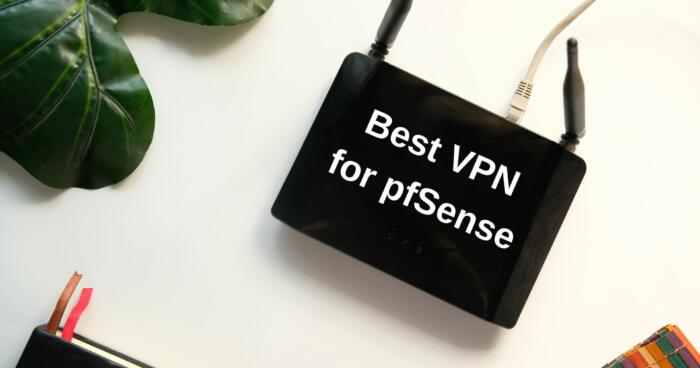
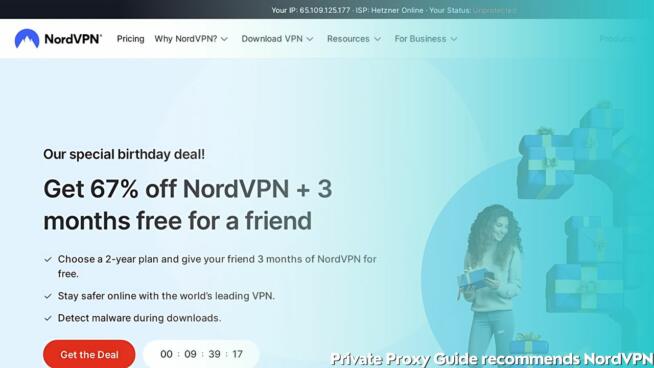
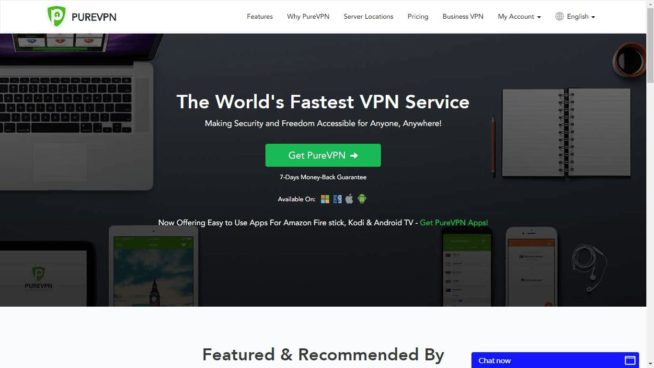


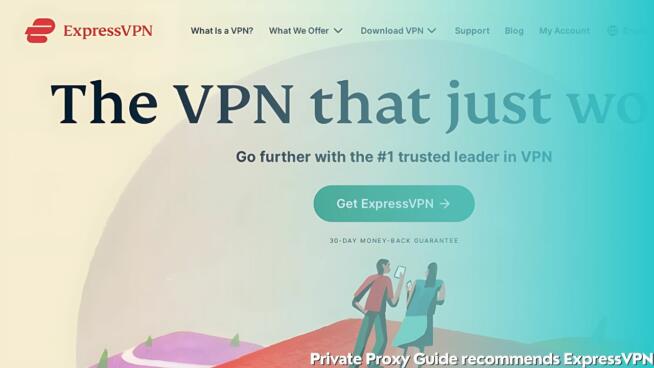
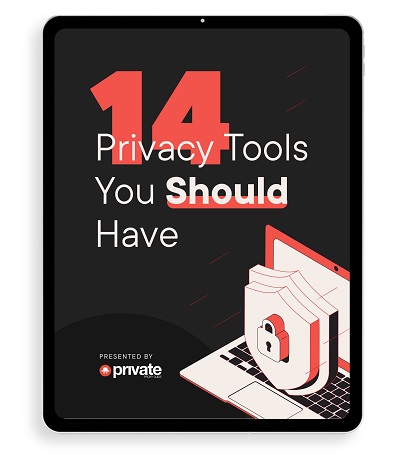
![5 Best VPN Providers ([year]) [PC, iOS, Android] VPN](https://www.privateproxyguide.com/wp-content/uploads/2021/03/vpn-150x150.jpg)
![Best VPN for Kodi in [month] [year] Best VPNs for Kodi 2021 - To Avoid Buffering & Other Issues](https://www.privateproxyguide.com/wp-content/uploads/2018/05/kodi-launch-logo-150x150.jpg)

![Best VPN for DraftKings in [month] [year] Best VPN for DraftKings](https://www.privateproxyguide.com/wp-content/uploads/2018/07/Best-VPN-for-DraftKings-150x150.jpg)
![Best Fortnite VPN in [month] [year] Best VPN for Fortnite](https://www.privateproxyguide.com/wp-content/uploads/2018/07/Best-VPN-for-Fortnite-BattleRoyale-150x150.jpg)
![5 Best VPN for Bet365 ([year]) [Fix not working] Best VPN for Bet365](https://www.privateproxyguide.com/wp-content/uploads/2018/08/best-vpn-for-bet365-150x150.jpg)
![Best Showbox VPN in [month] [year] Best VPN for Showbox](https://www.privateproxyguide.com/wp-content/uploads/2018/08/best-vpn-for-showbox-150x150.jpg)
![Best VPN for School WiFi in [month] [year] Best VPN for School WiFi in 2021 - How to Bypass VPN Bans](https://www.privateproxyguide.com/wp-content/uploads/2018/08/Best-VPN-for-School-College-150x150.jpg)
![Best Popcorn Time VPN in [month] [year] BEST VPN for Popcorn Time](https://www.privateproxyguide.com/wp-content/uploads/2019/01/best-vpn-for-popcorn-time-150x150.jpg)
![3 Best Apple TV 4K VPN in ([year]) & Setup Instructions Best VPN for Apple TV 4K 2021](https://www.privateproxyguide.com/wp-content/uploads/2019/02/Best-Vpn-for-apple-tv-4k-150x150.jpg)
![7 Best VPN for Hulu ([year]) [Fix not working] Best VPN for Hulu 2021](https://www.privateproxyguide.com/wp-content/uploads/2020/10/best-vpn-for-hulu-150x150.jpg)
![Best Nvidia Shield TV VPN in [month] [year] Best VPN for Nvidia Shield TV](https://www.privateproxyguide.com/wp-content/uploads/2019/03/best-vpn-for-nvidia-shield-tv-150x150.jpg)
![Best UAE & Dubai VPN in [month] [year] Best VPN for UAE & Dubai 2021](https://www.privateproxyguide.com/wp-content/uploads/2019/03/Best-VPN-for-UAE-Dubai-150x150.jpg)

![4 Best VPN for Amazon Prime Video ([year]) [Fix not working] Best VPN for Amazon Prime 2021](https://www.privateproxyguide.com/wp-content/uploads/2019/04/best-vpn-for-amazon-prime-150x150.jpg)